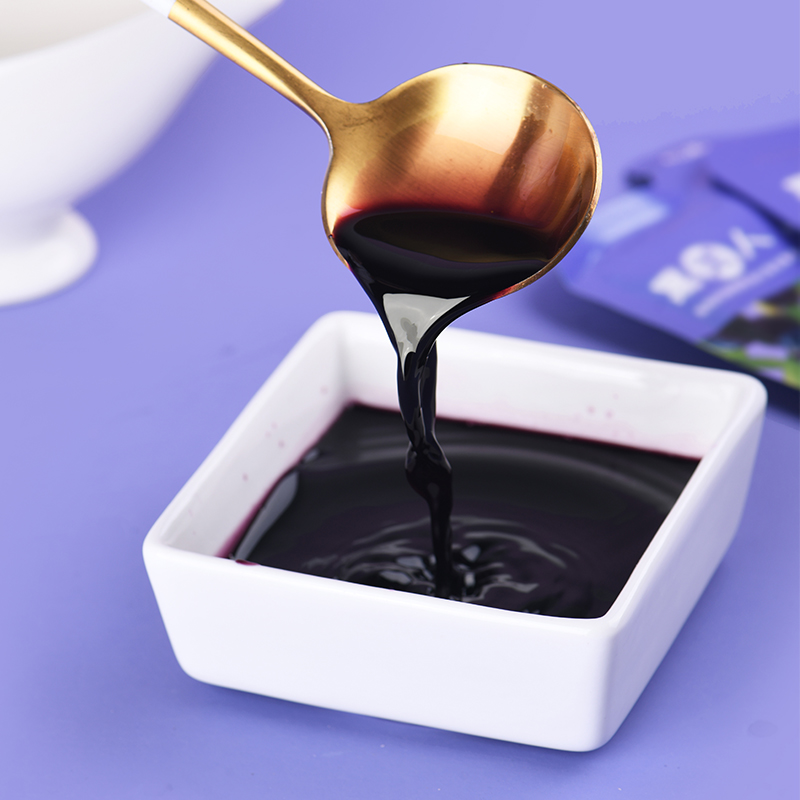Superfood — a term frequently applied to a wide variety of fruits, veggies and other food items. Is it a marketing ploy, a descriptor of alternative medicine, or a legitimate label? The Cambridge Dictionary simply defines superfoods as anything great for health; however, many nutritionists approach it more specifically. According to Beth Czerwony's for Cleveland Clinic, superfoods are low-calorie and full of nutrients. The label encapsulates plants with higher levels of antioxidants, vitamins, and minerals than expected. Most berries satisfy such criteria, especially the goji.
Long associated with health, goji has been utilized in Chinese traditional medicine for nearly 2,000 years. Alternatively known as wolfberries, these red fruits are tiny but densely packed with vitamins and antioxidants. Full of vitamins C, B, A, and E, some tout their effects on the human body as extraordinary, reports Refan. While their exact health benefits are still being researched, one thing is clear — they're both delicious and underrated. Let's dive into what makes them so special. Benefits Of Goji Berries

A vine plant with small, tomato-like fruit, goji berries are endemic to China. Known by the scientific name Lycium barbarum, these berries belong to the Solanaceae family, making them relatives of tomatoes and eggplants. When consumed raw, they resemble their red cousins in flavor with a sugary, acidic, and slightly nutty flavor similar to a cherry tomato. Besides in China, goji is rarely consumed straight off the vine. Instead, the fruit is sun-dried to allow for extended storage and an intensified flavor, per New Hope Network.
After drying, the half-inch berries are prepared in diverse ways, including wines, teas, juices, and in herbal mixes. Advocated for their effects on eyesight, liver, and kidneys, goji is seen as a medicinal remedy. Consumed in doses of less than an ounce, they're prescribed on their own or in combination with other substances, as reported by Hindawi. In recent years, extensive scientific research has been conducted on these claims — let's unpack the berry's true benefits.
The chemical makeup of this tiny fruit is astounding. Despite their small volume, goji contains eighteen amino acids, including all nine essential acids. In a one-ounce serving, they satisfy nearly 10% of the daily protein norm. In addition, goji is rich in fiber, aiding intestinal behavior. Yet the fruit's most esteemed quality is its vitamin and antioxidant makeup. One ounce of goji contains 150% of the daily norm of vitamin A, healthy for skin, eyes, and hair, as well as 500 times the amount of vitamin C as an orange, reports Foodaciously.
Scientific studies have implied immense potential in the antioxidant properties of goji. The berry contains zeaxanthin, a compound that demonstrated improvement in worsening eyesight and immune support. A study conducted with elderly subjects showed signs of increased general well-being. In alliance with its superfood marketability, goji has also shown prospects for weight loss, although the effects are less clear than the berry's other health benefits, as per The National Library of Medicine. While the berry's effects are fruitful, keep in mind not all advertised superfood qualities are backed by research.
If consuming predominantly for their health benefits, simply eat a raw handful, brew it into a tea, or purchase a juice. The berries do well in liquid form; in Chinese cuisine, they are often added to soups, per Down to Earth.
Goji berries are also ripe for more creative culinary applications. Their pleasant sour-sweet flavor is highly adaptable, and palatable as a topping or an extra flavor component in sweet and savory dishes. As a fellow small dried berry, substituting them for raisins is a logical start. Toss goji on top of oatmeal cookies, into bread, or as a component of trail mix. Alternatively, rehydrate the berries, and add them to smoothie bowls, or into pilafs for a tangy, sweet finish. When buying goji berries, look for dried fruits with some softness rather than a crunchy bite. Stored in a cold, dark place, goji will last for up to a year, reports Bon Appetit.

Natural Black Goji Berry These fruits are booming in popularity worldwide, with their market worth 1.3 billion USD in 2020, and expected to grow to 1.7 billion by 2027. Most berries are procured from Asia, although they are also increasingly grown in Europe, reports Maximize Market Research. As part of their expanded sales, they are becoming easier to find and purchase. Many online retailers sell berries in both dried and juice forms. Health-focused grocery stores also usually sell the fruit, both in bulk sections and in pre-packaged form.